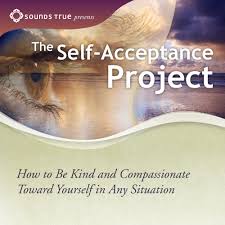Dear Blogging Friends,
After my last post admitting the fact that I have no clue what I’m doing with my various blogs and social media pages, my faithful reader, Doug, said he voted for having this be more of a personal blog. Although appealing, it scares me for several reasons. One, I’ve been raised to be very private. (Why not just write in a journal?) In addition, some of the things I want to write about involve other people, who don’t want their stories told. I respect that. And then there’s this: a personal blog is, well, personal. Do I really want the world to know how messed up I am? I told my husband a few weeks ago, “I thought I’d be more together by age 52.” He so sweetly and earnestly said, “Being together is over-rated.”
You have been taught that there is something wrong with you and that you are imperfect, and there isn’t and you’re not.
-Cheri Huber
But, at least for today, I’m going to go for it, and tell you what’s really going on with me.
My self-compassion practice has been a joke. My husband told me the other day that he thinks I’m still way too hard on myself. I said incredulously, “Really?” I hadn’t even noticed. So I retook the self-compassion test on Kristin Neff’s website and I scored horribly–probably lower than I did when I first started this blog. Oh my gosh. I felt badly because I was feeling so badly about myself! Of course, I started to cry.
My first year of blogging went really well. I was learning to be kinder and more gentle with myself; I felt more peaceful. So what happened? I’m not sure, but here are a few theories (maybe not in order of importance–I’m figuring this out as I go):
1. Chronic pain has worn me down.
- I’ve felt overwhelmed dealing with doctors and new medicine trials. I’ve had hopes dashed when a medicine gave me so many side effects I stopped taking it, and then read in my records I was labeled “noncompliant.”
- I don’t have doctors I trust. I feel like I’m flip-flopping around too much, but I can’t find anyone I click with.
- It’s frustrating having to weigh every decision based on whether I think I’ll be able to manage the pain, and how long I’ll take to recover.
- The things I like to do the most are the things that exacerbate my pain.
One’s dignity may be assaulted, vandalized and cruelly mocked, but it can never be taken away unless it is surrendered.
-Michael J. Fox
2. Dealing with depression on top of chronic pain really sucks.
- I’ve had a long, long history of depression, and I’ve come to realize that I have what’s called “treatment-resistant” depression. Despite lots of psychotherapy and lots of different medications, I have a very difficult time maintaining a stable mood. (And going through menopause definitely made me worse!) I’m not Bipolar with highs and lows–I just have varying degrees of lows, with just enough good days sprinkled in to let me know what I’m missing. My last psychiatrist retired, so I’m starting with a new one. Of course, she thinks the previous doc had me on all the wrong things, so I’m trying some new things, which is EXTREMELY scary for me. I am trying really, really hard. I didn’t read any of the information on side effects and am giving this a chance. It’s been two weeks and I’m afraid to be hopeful, but maybe I am, just a little bit.
When we remember we are all mad, the mysteries disappear and life stands explained.
-Mark Twain
3. I have an over-active reptilian brain.
The reptilian brain is the part of the brain that deals with threats. From an evolutionary perspective, this part of the brain kept us safe from lions and tigers and bears (oh my!). When confronted with perceived danger, adrenaline kicks in and we swiftly move into survival mode. Our nervous system goes on overdrive and we can do amazing things–run quickly, fight off an enemy, or freeze until our enemy thinks we’re dead and leaves us alone. I would have been great in prehistoric times. But now? My brain is constantly scanning for things to go wrong, leaving me in worry-mode much of the time.
Also, as Kristin Neff pointed out: “…when the threat is to our self-concept, self-criticism does not work well. When you view yourself as the problem (I can’t believe I gained those 5 pounds back, I should’ve gotten an A on that test) the reptilian brain kicks in and attacks yourself, thus the self-critical self-talk.”
To top it off, as neuroscientist Rick Hanson describes it, my brain is like teflon for remembering positive events and velcro for remembering negative events. In actuality, the ratio of positive to negative events in my life is in my favor, but it often doesn’t feel this way. I forget the good.
What does this have to do with my self-compassion practice going awry? I think because these grooves are so deeply cut into my brain that I have to be very intentional to move out of this way of being. And I haven’t been very intentional (partly due to #1 and #2)
We have to have compassion for the self critic. Self-criticism comes from a desire to keep ourselves safe.
-Kristin Neff
This is getting kind of long, but I’m not finished yet! I’ll continue in Part Two, hopefully in a few days. I want you to know how much I appreciate you reading this and all your support. I am going to begin again with self-compassion, this very moment, and know that it is okay. I’m okay, you’re okay, and everything is already alright.
You are imperfect, permanently and inevitably flawed. And you’re beautiful.
-Amy Bloom
Photos by Greg Markway, taken over the past few weeks.














